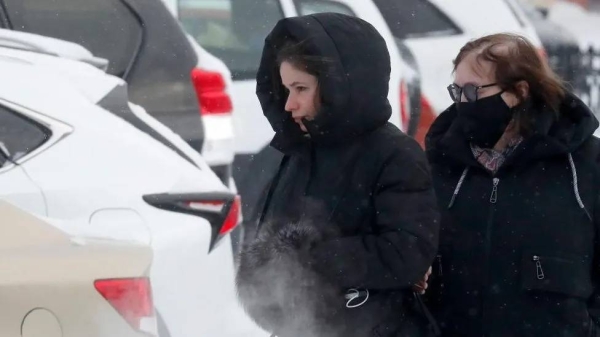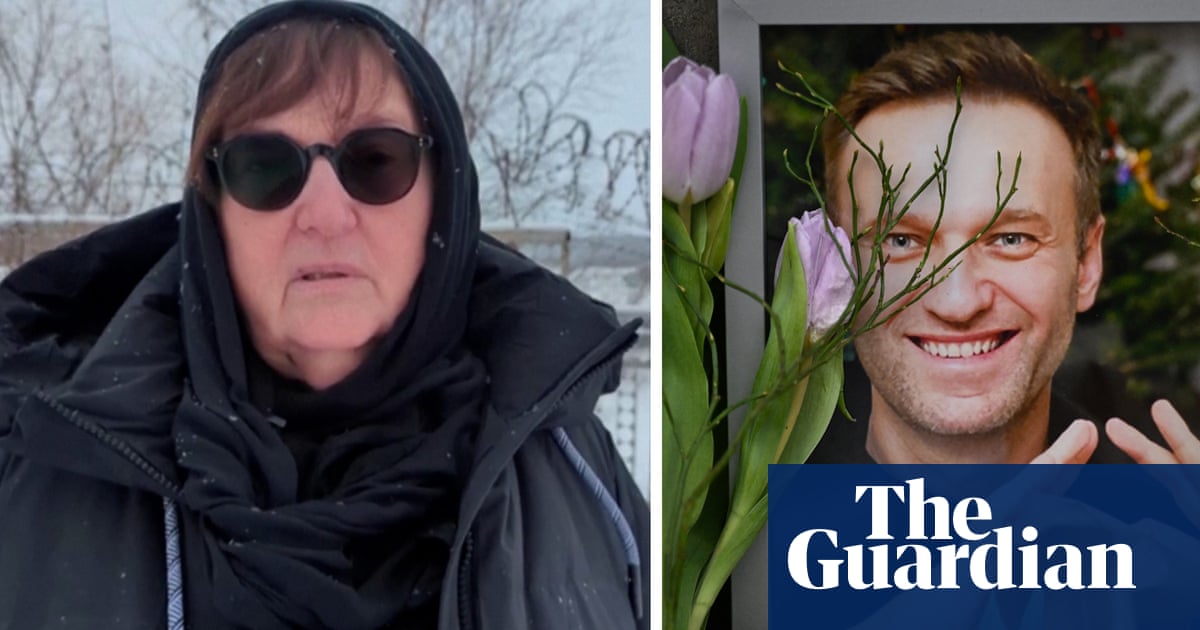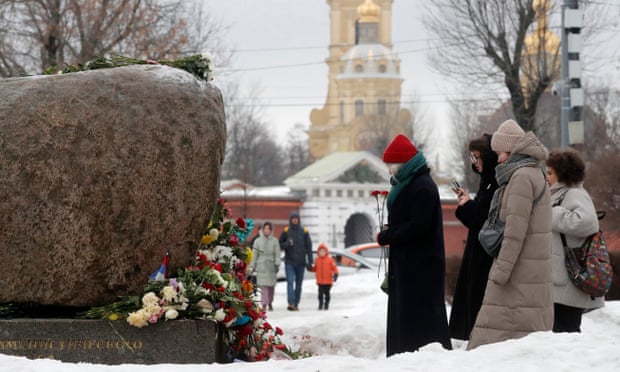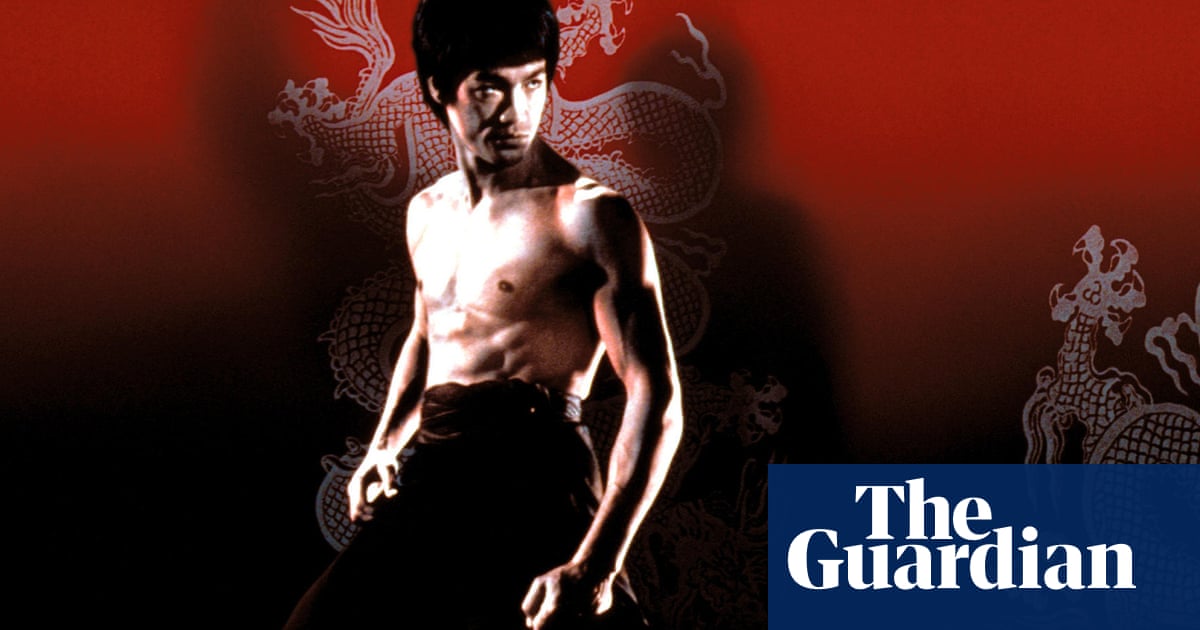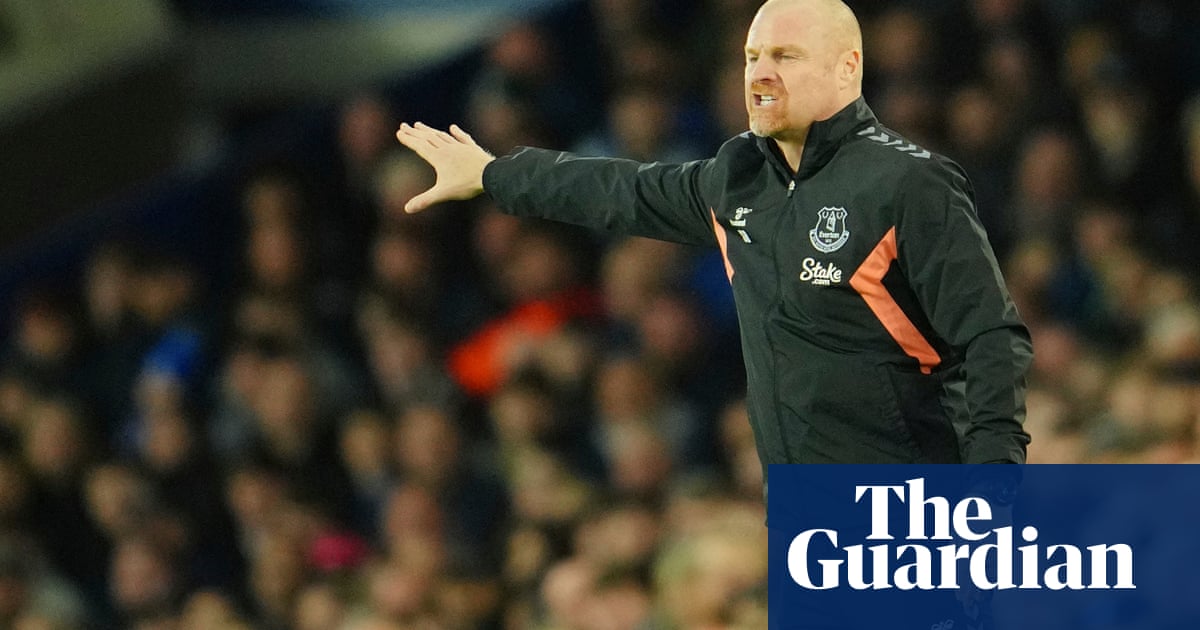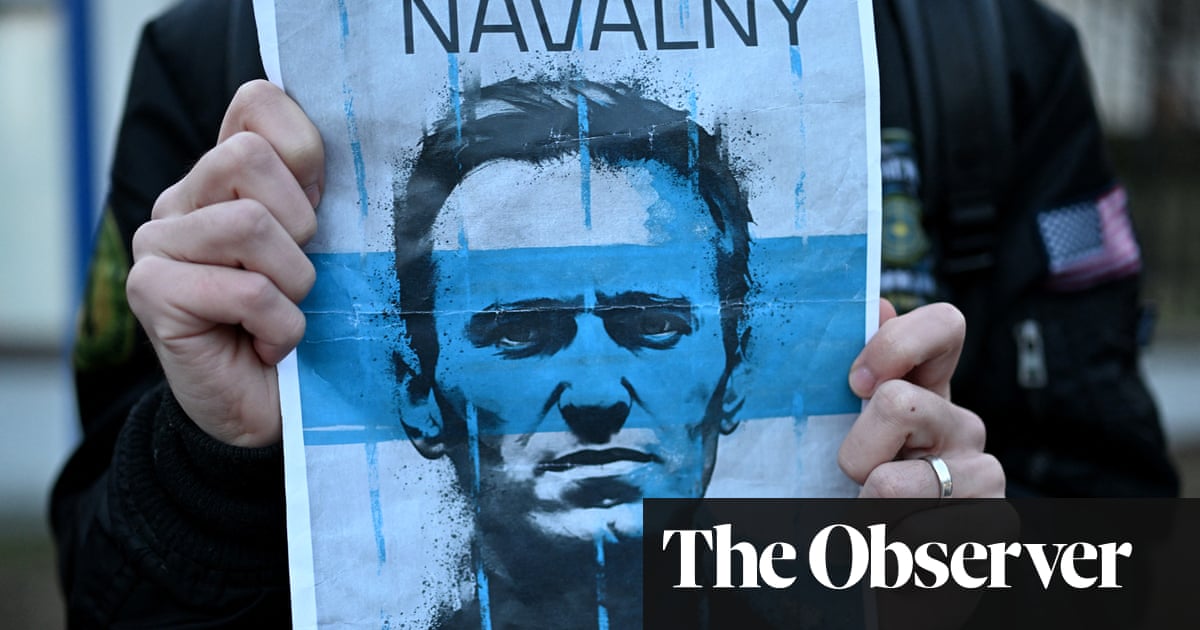
In Russia, it is not enough to kill an opposition leader. His ageing mother must travel to the Arctic Circle to search a prison colony and a morgue for his body. Russians with the temerity to lay carnations in his memory must be detained.
Even a preliminary cause of death, “sudden death syndrome”, was misleading, as though his death behind bars was not years in the making.
All this happened the day after Alexei Navalny died, as the bureaucratic machinery of the vast Russian state swung into gear, brushing over the Kremlin critic’s death with a veneer of official disdain and petty cruelty.
“It’s obvious that they are lying and doing everything they can to avoid handing over the body,” said Kira Yarmysh, Navalny’s press secretary, as 69-year-old Lyudmila, his mother, and a lawyer battled to retrieve his body in the city of Salekhard.
Maybe next week, investigators told them, saying the cause of death had not been established and there were still tests to run.
“Putin killed Alexei Navalny,” said Georgy Alburov, a Navalny ally and researcher for his Anti-Corruption Foundation. “How exactly he did it will certainly be exposed, but right now we will observe an endless marathon of lies and playing for time. Putin will do everything to make it impossible to establish what actually happened to Alexei.”
For now, Russia tries to stymie Navalny’s family and supporters, with no act of interference too small to disrupt memorials to a defiant critic of Russian president Vladimir Putin. The task is shared among thousands of state employees, from the Kremlin officials to investigators, prosecutors and judges, riot police, prison guards, television anchors and writers, and many more, each contributing a small bit to an irresistible force that has crushed whatever Russia had of a pro-democracy movement.
Nothing personal. That’s the job. Just as Vladimir Putin never mentioned Navalny by name, so the Russian politician barely merited a mention on state television, the better for the public to forget about him.
Instead, in the short segments referencing his death, he was referred to with a new title coined by the penitentiary service: “The convict.” But generally, state media ignored his passing.
At protests outside Russian embassies around the world, as well as inside Russia, his supporters sought to memorialise his name.
“Hello, this is Navalny!” some chanted, a reference to the intro for his investigative YouTube films, which helped build him a wide public following based on his anti-corruption agenda and acerbic wit.
He had placed a bet on imagining a happier Russia, where people were encouraged to act morally. “We have everything – but we are an unhappy country … Russia should not only be free, but also happy. Russia will be happy,” he said at a final courtroom appearance in 2021.
And in a country dominated by apathy towards politics, he also encouraged activism and energy: “If they decide to kill me, it means that we are incredibly strong … we need to utilise this power to not give up, to remember we are a huge power that is being oppressed by these bad dudes.”
Many of those clocked in and grabbed their riot shields and batons on Saturday, as small groups of dedicated supporters headed to vigils or individual pickets in 32 cities to protest what they believed was a political assassination of Navalny by Vladimir Putin.
“Navalny was killed because we didn’t care,” one protester wrote on a sign in front of St Petersburg’s Kazan Cathedral. He was quickly detained, as were 358 others in cities across Russia.
It was hardly the largest protest Russia has seen, but any demonstration now is of note, since authorities have effectively banned public gatherings.
“Why be afraid? You only live once,” said one young woman speaking on camera to Sotavision, an independent Russian media outlet.
“If you don’t come now, then when?… It’s still not [as bad as] Belarus yet, it’s still possible to go out and speak your opinion.”
When they didn’t make arrests, police still engaged in tense back-and-forths with Navalny supporters.
“Go grieve in the subway,” one said, as he dispersed a crowd at the Solovetsky Stone, a monument to the victims of political repression, near the former KGB headquarters in Moscow.
The cycle of death and state obfuscation has played out predictably, as it did with the assassination of Putin critic Boris Nemtsov near the Kremlin walls in 2015.
On Friday, the president appeared smiling and joking with factory workers in Chelyabinsk, hours after he had been informed about Navalny’s death, according to press secretary Dmitry Peskov.
By Saturday yesterday evening, Navalny’s mother in Salekhard still could not locate his body. At the prison colony, she was told it was in the morgue. The morgue was closed.
For now, his supporters grapple with his loss.
“It’s very, very difficult,” wrote Maria Pevchikh, a close ally who heads investigations for the Anti-Corruption Foundation. “It’s unbearable … Just remember, we are in this horror together, and we need to get out of it together too.
“Navalny is an impossible loss, irreparable.”





